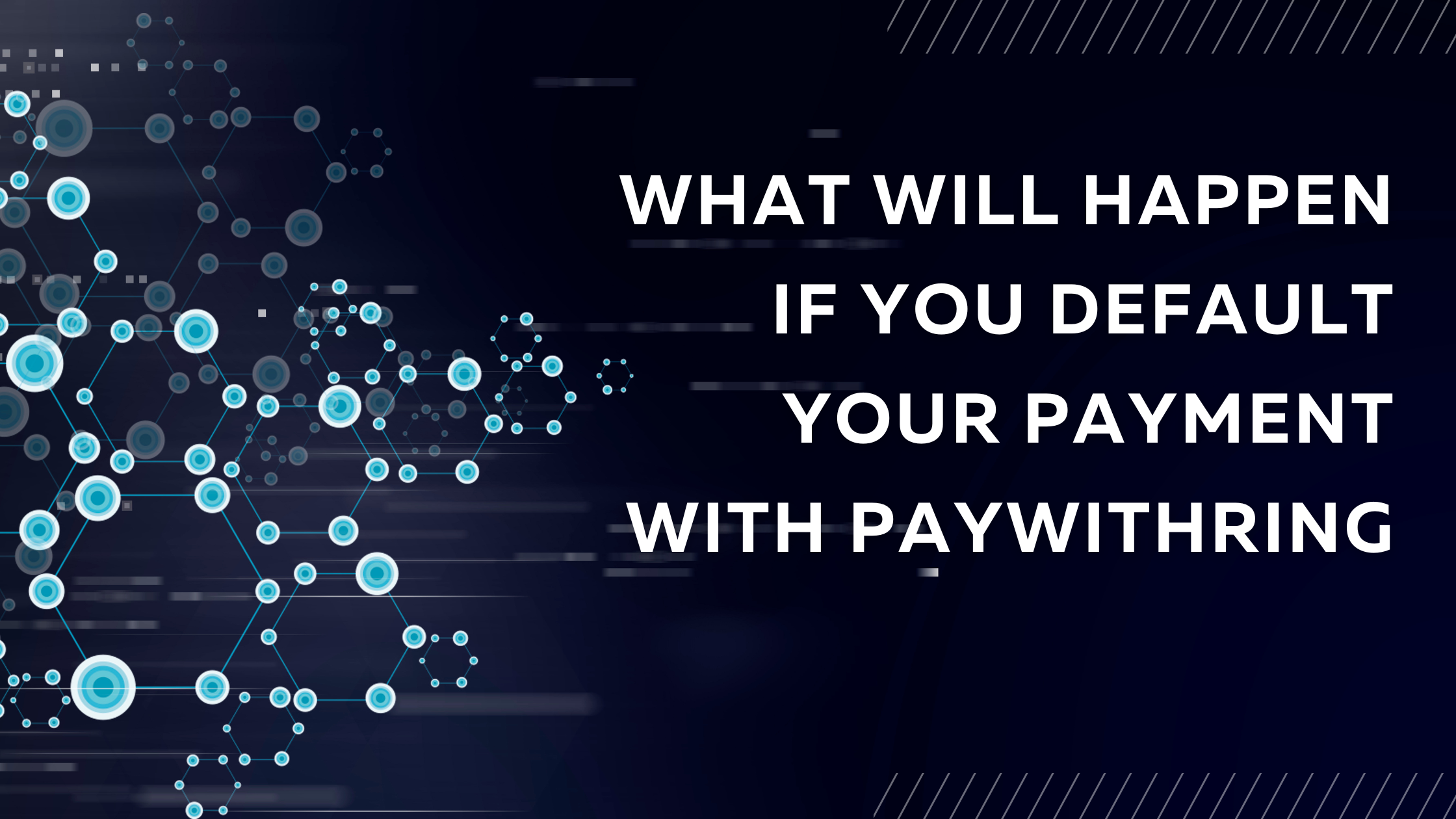What will happen if you default your payment with paywithRING
Are you a new user of the paywithRING payment app, or are you considering using the service because you have heard good things about it lately and want to join the paywithRING community? There’s a good probability that you’ve lately heard of paywithRING and are looking for further details on paywithRING fees and paywithRING charges in case of default in payments. Indeed, using a financial service without being aware of the Terms and Conditions can be more hazardous to us today. Therefore, this article explores the various aspects associated with delayed payments on paywithRING in detail so that we may utilize it more effectively. We will discuss what paywithRING is in this post and the numerous fees and costs connected to it.
paywithRING is a financial service provider that provides credit and power loans to its users. paywithRING provides a paywithRING credit line and power loans to its users within a few minutes. Once credited, the user can use this amount to make payments for various purchases. It is as competent as any other UPI payment platform. Moreover, the user can repay this credit limit within the stipulated time to continue enjoying the service by paywithRING. Also, paywithRING accounts come with fairly easy-to-use terms and nominal charges. It is a popular payment platform that allows users to make quick and secure transactions using their smartphones. However, there may be instances where a user may default on their payment with paywithRING. Defaulting on a payment refers to failing to make the required payment within the specified timeframe. Defaulting on a payment can have serious consequences, and users need to understand what may happen if they find themselves in this situation.
● Late Payment Penalty
If a user defaults on their payment with paywithRING, they may incur late payment fees or penalties. PaywithRING charges are typically charged to compensate the paywithRING for the additional administrative costs associated with managing late payments. The amount of these paywithRING fees can vary depending on the terms and conditions set by RING. The penalty is usually imposed if the payment is not received by the due date or within a specified grace period. The grace period, if applicable, is an additional period after the due date, during which the payment can still be made without incurring a penalty.
Late payment penalties may accrue if subsequent paywithRING payments are also missed. In such cases, the penalty may compound with each missed payment, increasing the total amount owed.
● Negative Impact on Credit Score
Defaulting on a payment with RING can harm a user’s credit score. Financial institutions use credit scores to assess an individual’s creditworthiness and determine their ability to repay debts. When a payment is defaulted, it is reported to credit bureaus and can lower the user’s credit score. A lower credit score can make it more difficult for users to obtain credit in the future, such as loans or credit cards. Users need to be aware of the potential impact on their credit scores and take steps to avoid defaulting on payments.
● Difficulty in Obtaining Credit in Future
Defaulting on payments with RING can make it challenging for the user to obtain credit in the future. Lenders may view borrowers with a history of defaults as higher risk and may be hesitant to extend credit to them. It can limit the borrower’s access to loans, credit cards, or other forms of credit in the future.
● Legal Action
In addition to late fees and a lower credit score, defaulting on a payment with RING can also result in legal action against the user only when the user extends the repayment beyond the due date. If a user consistently fails to make payments or ignores attempts to collect the debt, paywithRING may choose to take legal action. It can involve filing a lawsuit against the user to recover the outstanding debt. Legal action can result in additional costs for the user, such as court fees and legal representation. Users must address any payment issues with RING as soon as possible to avoid escalating the situation to legal proceedings.
HOW TO AVOID PAYMENT DEFAULT?
To avoid defaulting on repayment, there are several steps that users can take to ensure they stay on top of their payments. First and foremost, it’s critical to establish and adhere to a budget. It means assessing one’s income and expenses and allocating a certain amount towards monthly credit repayments. By incorporating repayments into the budget, users can avoid overspending and ensure they have enough funds to repay on time. Another step to prevent defaulting on repayment is to set up automatic payments. PaywithRING offers the option to set up automatic payments, deducting the minimum payment or a specified amount from the user’s account each month. By setting up automatic payments, users can eliminate the risk of forgetting to make their payments or having insufficient funds. Lastly, it is crucial to monitor credit statements regularly. By reviewing monthly statements, users can identify errors or fraudulent transactions and address them promptly. It also helps in keeping track of expenses and staying aware of the total outstanding balance. PaywithRING reviews and offers customer support that can help borrowers explore repayment options, negotiate alternative arrangements, or provide temporary relief. It is crucial for users facing financial difficulties to communicate with paywithRING customer support as soon as possible.
Overall, defaulting on a payment with paywithRING can seriously affect users. It can result in late payment of paywithRING fees or lower credit scores. It is important for users to be proactive in managing their payments and to communicate with RING if they are experiencing difficulties. By doing so, users can avoid the negative consequences of defaulting on payments and maintain a positive financial standing.










